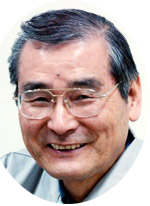
Mr SHUICHI YOSHIDA
In spring 1958, together with other 26 new employees fresh from universities I was put into Gemba (production shop-floor) to work side by side with production workers at Nissan. It was 6 months-long cadet training program, which is common even today to many Japanese manufacturing companies.
President, GTR Institute Professor (Visiting), Ritsumeikan Asia Pacific University
In spring 1958, together with other 26 new employees fresh from universities I was put into Gemba (production shop-floor) to work side by side with production workers at Nissan. It was 6 months-long cadet training program, which is common even today to many Japanese manufacturing companies.
During the training program, we were asked to write a daily report picking-up some production-related problems. During the training, I learned a very important lesson—– Importance of Gemba and People.
After this training program, each university graduate cadet was officially assigned to his first department. My first job assignment was QC about over-hauling operations of R3350 aircraft engines. R3350 reciprocating engine was the biggest aircraft engine ever built. The B52 bombers and P2V anti-submarine aircraft were equipped with these engines.
In order to meet stringent contract agreements with US Navy, the whole over-hauling operations are always put under strict QC surveillance system that was set-up in accordance with the US military specification: MIL-Q-5923.
Everything about this first assignment was new and unknown to the 23-year-old green youth. I had not studied about any aircraft engine and QC at the university. But I took this first assignment as the challenge. Curtis Wright Aircraft Company provided us with overhaul-related technical documents including SOPs (Standard Operation Procedures).
I was surprised to find their SOPs being so complete and easy to use. At first, my first job was to translate this thick operation manual into Japanese so that Japanese technicians become able to overhaul the engine correctly.
The second lesson I learned—- Importance of SOP. Later as I worked and studied with QC, I came to think of SOP to be one of the most important things for any business operation because it specifies how correctly and how fast the job must be done.
I worked closely with JUSE (Japan Union of Scientists and Engineers) to disseminate QC Circle to Nissan. QC Circle is picked-up as an embryonic form of Japanese production management named Kaizen. When Nissan decided to launch its auto assembly plant as the first Japanese plant in the USA, it was a great test if the Japanese management system could be transplanted or not, in different cultural soils.
You are invited to visit the video to find more about Prof. Shuichi Yoshida when he came to the United States of America.